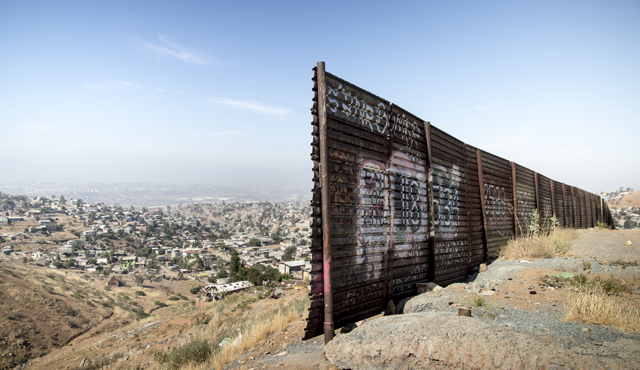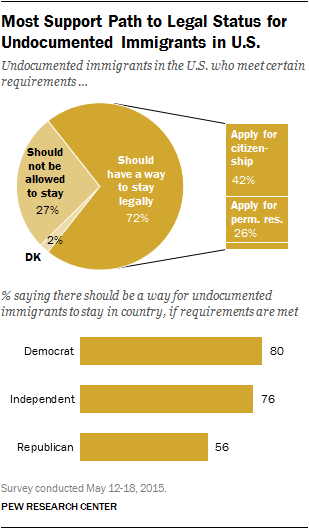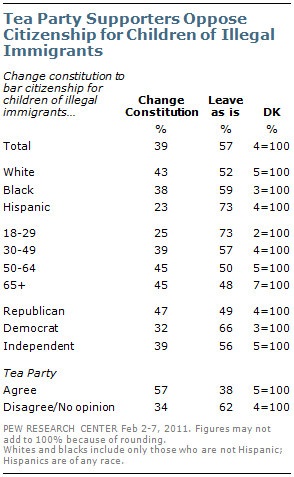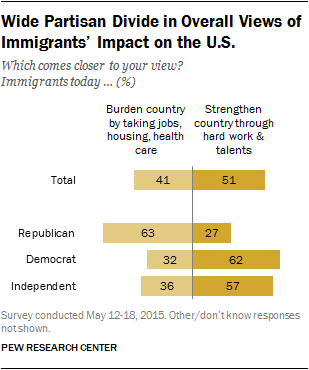is illegal immigration a threat to the country? what do you think the government should do about it?

The fence over the future of the nation's estimated 11.3 1000000 unauthorized immigrants is on the political forepart burner once again.
President Barack Obama set the stage in November when he appear new executive actions (now tied up in courtroom) to prevent the deportation of millions of unauthorized immigrants, expanding 2012's original program aimed mostly at providing relief to those brought to the United States as children. Illegal clearing has dominated the Republican presidential campaign, particularly after Donald Trump'southward call for deporting all undocumented immigrants in the U.S. and building a wall along the U.South.-Mexico border. Others have called for a irresolute the ramble amendment that guarantees birthright citizenship.
Amongst the public overall, there is fiddling back up for an effort to carry all those in the U.Due south. illegally, but surveys in by years have found greater back up for building a barrier along the Mexican edge and for irresolute the Constitution to ban birthright citizenship.
Republicans take long been conflicted over U.South. immigration policy. On the one hand, consistent majorities of Republicans favor providing a path to legal status for people in the U.S. illegally. Yet most Republicans besides worry that granting legal status to undocumented immigrants would amount to a tacit reward for illegal behavior. And in the past, nearly half of Republicans supported changing the Constitution to bar birthright citizenship, and a majority supported edifice a fence along the unabridged U.Due south. border with Mexico.
Hither'south a breakdown of public opinion on some key immigration issues:
 Stay or behave? In a Pew Research Eye survey conducted in May, a solid majority (72%) of Americans – including 80% of Democrats, 76% of independents and 56% of Republicans – say undocumented immigrants currently living in the U.South. should exist immune to stay in this land legally if they meet certain requirements. Terminal year, nosotros asked a follow-up question of those who opposed granting legal condition to undocumented immigrants: Should in that location be a "national constabulary enforcement effort to acquit" all immigrants here illegally? Just 17% of the public overall favored such an effort, including about a quarter (27%) of Republicans.
Stay or behave? In a Pew Research Eye survey conducted in May, a solid majority (72%) of Americans – including 80% of Democrats, 76% of independents and 56% of Republicans – say undocumented immigrants currently living in the U.South. should exist immune to stay in this land legally if they meet certain requirements. Terminal year, nosotros asked a follow-up question of those who opposed granting legal condition to undocumented immigrants: Should in that location be a "national constabulary enforcement effort to acquit" all immigrants here illegally? Just 17% of the public overall favored such an effort, including about a quarter (27%) of Republicans.
Moreover, in a 2013 survey, 76% of Republicans said that deporting all immigrants in the U.Southward. illegally was "unrealistic."
I mensurate of public sentiment is how Americans take felt about the tape number of deportations of unauthorized immigrants during the Obama administration – and an early-2014 survey found the public was divided. Overall, 45% of Americans called the increase in such deportations a good thing and the aforementioned share said it was a bad thing. Republicans (55% good thing), especially Republicans and Republican leaners who agree with the Tea Party (65%), were more likely than Democrats (37%) to have a positive view of increased deportations.
A bulk (60%) of Hispanics saw the increase in deportations as a bad thing. In another survey of Latino adults in 2013, about half (46%) said they worry "a lot" or "some" that they, a family fellow member or a close friend could be deported. And 56% said information technology was more important for undocumented immigrants to be able to work and alive in the U.S. without the threat of displacement than to obtain a pathway to citizenship, according to our 2022 poll.
 Birthright citizenship: One of the proposals raised in the current Republican presidential campaign is whether to change the U.S. Constitution's 14th Amendment, which states, "All persons born or naturalized in the United States, and subject area to the jurisdiction thereof, are citizens of the United States and of the State wherein they reside." On that effect, a majority of Americans (57%) in February 2011 said that the Constitution should remain as it is, allowing any child born in the U.S. full citizenship; 39% favored changing the Constitution to bar birthright citizenship. (Also, nosotros establish that 87% of Americans were enlightened of this birthright.)
Birthright citizenship: One of the proposals raised in the current Republican presidential campaign is whether to change the U.S. Constitution's 14th Amendment, which states, "All persons born or naturalized in the United States, and subject area to the jurisdiction thereof, are citizens of the United States and of the State wherein they reside." On that effect, a majority of Americans (57%) in February 2011 said that the Constitution should remain as it is, allowing any child born in the U.S. full citizenship; 39% favored changing the Constitution to bar birthright citizenship. (Also, nosotros establish that 87% of Americans were enlightened of this birthright.)
At that time, the idea of ending birthright citizenship drew broad opposition amongst Hispanics (73%), young people (73% of those under 30) and Democrats (66%). Nonetheless, Republicans were divided: 49% wanted to leave the Constitution equally it is, while 47% favored a ramble subpoena to bar birthright citizenship.
In 2012, at least 4.5 one thousand thousand U.S.-built-in children lived with at to the lowest degree ane unauthorized parent, according to our analysis. Some four million unauthorized immigrant adults lived with their U.S.-born children.
Build a wall, or a fence: Our virtually recent survey on this issue was in October 2011. At that time, 46% favored building a debate "along the entire edge with Mexico," while 47% were opposed. Republicans (62%) were far more likely than independents (44%) or Democrats (39%) to back up the construction of a border fence.
 Overall views of immigrants: Views most immigration policies are often shaped by views about immigrants themselves: Are immigrants generally a problem, taking jobs and services, or do they strengthen the state through hard work and talents?
Overall views of immigrants: Views most immigration policies are often shaped by views about immigrants themselves: Are immigrants generally a problem, taking jobs and services, or do they strengthen the state through hard work and talents?
In our May survey, nearly half of Americans (51%) say immigrants strengthen the country, while 41% view them equally a burden. (These opinions accept fluctuated over the years, but in the mid-1990s, majorities said immigrants to the U.Southward. were a burden.) However, Republicans (63%) are far more likely than Democrats (32%) to say immigrants are a burden. And the share of Republicans who regard immigrants as a burden jumped 15 percentage points, from 48% in March 2014.
Declining immigration: The latest immigration contend comes confronting a properties in which the number of unauthorized immigrants coming to the U.S. has leveled off. That number peaked in 2007, peculiarly for those from Mexico.
As growth of this grouping has stalled, there has been a recent precipitous ascent in the median length of time that unauthorized immigrants accept lived in the U.S. In 2013, unauthorized immigrant adults had been in the U.South. for a median time of about 13 years – meaning that half had been in the country at least that long, co-ordinate to a preliminary gauge. A decade earlier, in 2003, the median for adults was less than eight years.
Despite the renewed focus on immigration, information technology's worth keeping in mind that immigration has not ranked loftier in our annual poll on the bug Americans see as a meridian priority for the president and Congress. Even among Hispanics, immigration has not been a top priority; a 2022 survey constitute that Hispanics rated education (92%), jobs and the economy (91%), and health care (86%) as extremely or very important problems but fewer said the same nigh immigration (73%).
Source: https://www.pewresearch.org/fact-tank/2015/08/24/what-americans-want-to-do-about-illegal-immigration/
0 Response to "is illegal immigration a threat to the country? what do you think the government should do about it?"
Post a Comment